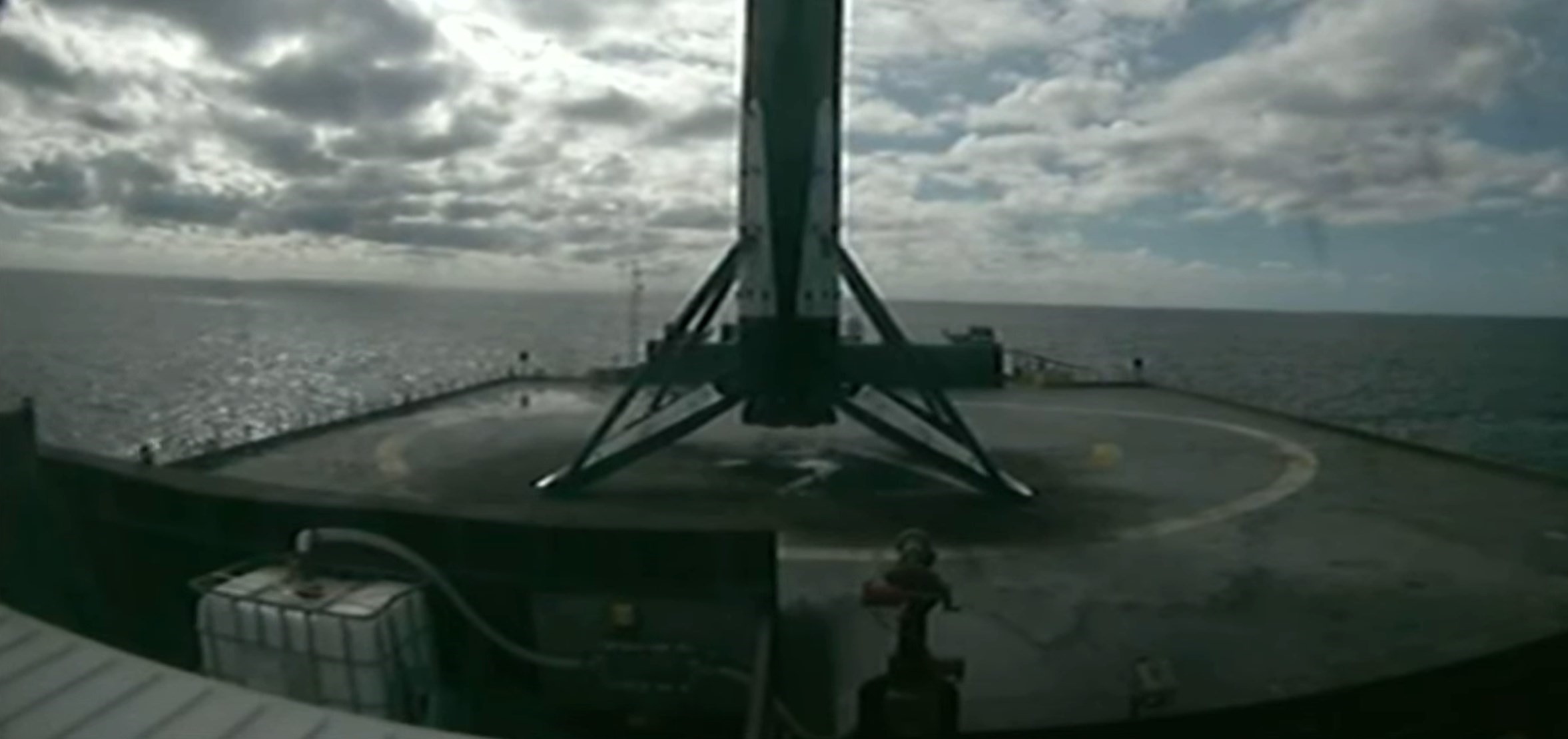
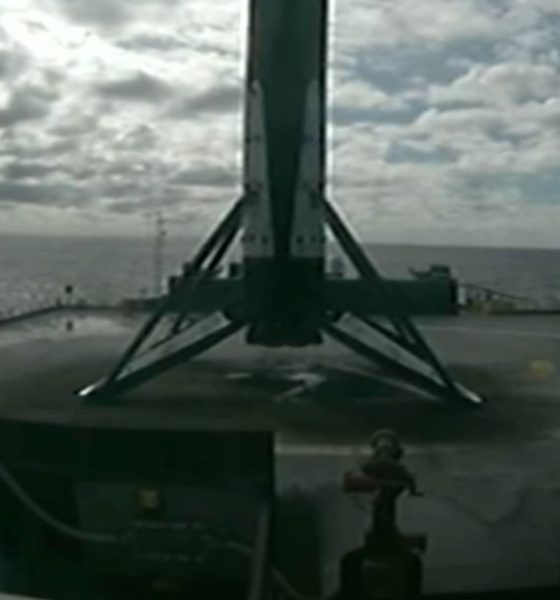
News
SpaceX Falcon 9 booster nails record fourth launch and landing during Starlink-1
For the first time ever, SpaceX has successfully launched and landed the same Falcon 9 booster on four separate orbital-class missions, pushing the rocket’s Block 5 upgrade one step closer to realizing its ambitious design goals.
After an unprecedented lull of more than three months between launches, SpaceX has successfully returned to flight with its internal Starlink-1 mission, simultaneously crossing off multiple rocket reusability milestones. In terms of value added, Falcon 9 booster B1048’s reflight was the most important non-satellite achievement of the mission.
Impressively, B1048 has now successfully launched and landed on four separate occasions, a first for all Falcon 9 or Heavy boosters. Some nine minutes after lifting off from Cape Canaveral, Florida’s LC-40 launch pad, B1048 came to a gentle, near-bullseye halt aboard drone ship Of Course I Still Love You (OCISLY), stationed some 630 km (340 mi) northeast of the Florida coast.
With the successful completion of Starlink-1, B1048 alone has now collectively supported the launch of more than 35 metric tons (77,000 lb) into Earth orbit, as well as the first attempted (but sadly unsuccessful) commercial Moon landing attempt as part of its third launch in February 2019. This particular tidbit is noteworthy because it likely makes B1048 the first Falcon 9 booster to help orbit more than twice the payload mass it would otherwise be capable of launching in a single mission, an impressive reminder of the game-changing success of SpaceX’s reusable rocketry development.
Even then, B1049 is likely close on B1048’s heels – if not already ahead of the booster – in terms of the mass of satellites it has singlehandedly helped to place in orbit.
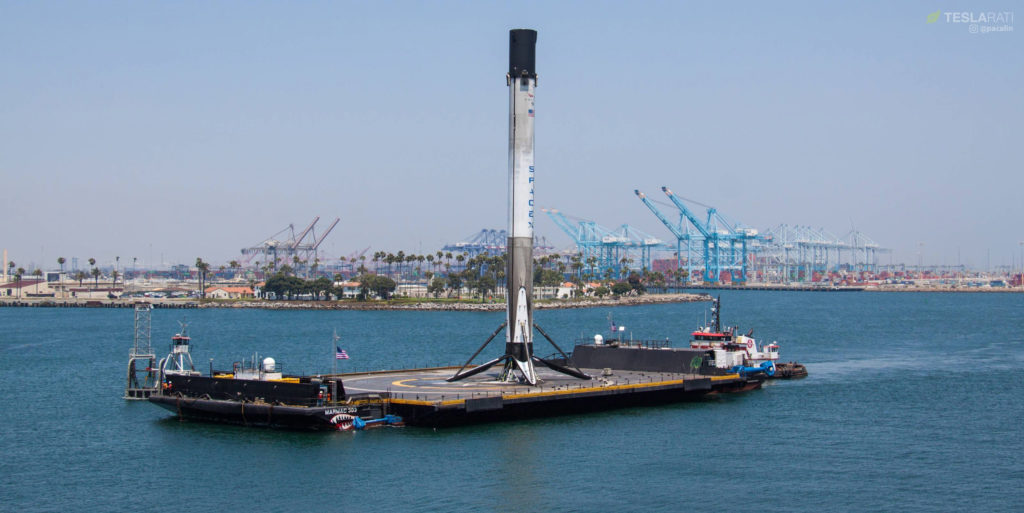
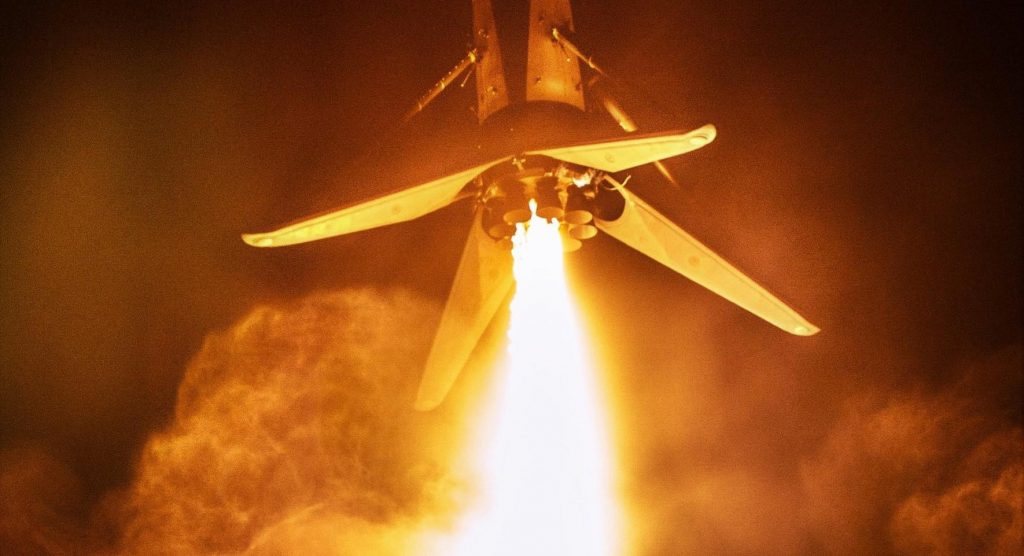
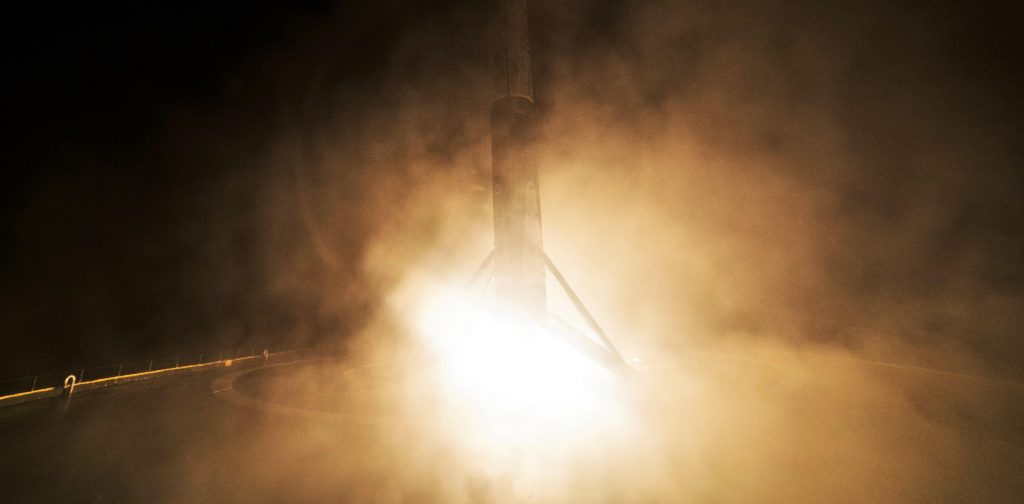
Aside from Falcon 9 B1048’s historic fourth launch and landing, Starlink-1 also marked the first time SpaceX has launched a flight-proven payload fairing, a huge step towards ensuring that nearly all future Falcon launches are up to 80% flight-proven and 80% reusable. Starlink-1’s payload fairing previously flew on Falcon Heavy Block 5’s Arabsat 6A launch debut back in April 2019, essentially a worst-case scenario for fairing reuse.
That successful reuse in spite of the fairing’s exceptionally extreme launch and recovery conditions suggests that almost any fairing recovered in the future will capable of at least one reuse, be it on internal Starlink missions if not customer launches. CEO Elon Musk has previously indicated that Falcon 9 (and Heavy) fairings represent approximately 10% of the cost of Falcon 9 launches, meaning that each set of halves has a price tag of roughly $6 million. Additionally, it’s believed that Falcon fairing production has some of the longest lead-time aspects of any aspect of SpaceX rocket manufacturing, to the point that fairings could easily become a bottleneck for launch cadence without expensive production facility upgrades.

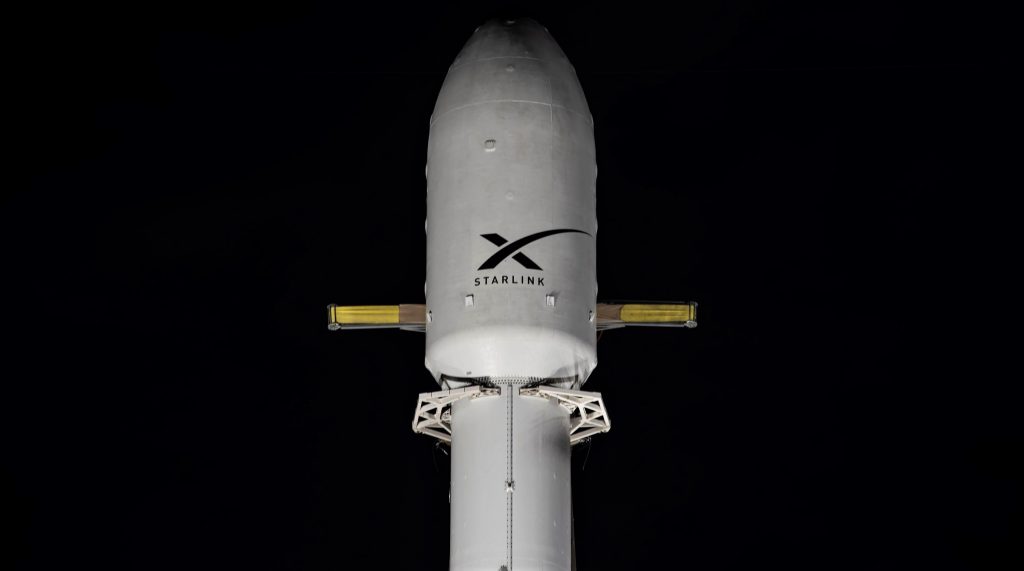
Instead, SpaceX may have chosen to spend a similar amount of time and money making Falcon fairings routinely recoverable and reusable. That program crossed a turning point in June and August 2019, when fairing recovery ship GO Ms. Tree (formerly Mr. Steven) successfully caught two fairing halves in a row, unequivocally proving that the challenging catches are repeatable. Three months later, November 11th’s Starlink-1 launch has also proven that fairings can be reused even without a successful catch, meaning that it will likely be far easier and far more viable to reuse fairings that have been saved from ocean baths.
Unfortunately, SpaceX had to call off an attempted dual recovery of both fairing halves and GO Ms. Chief’s first operational catch attempt due to high seas in the recovery area. Prior to her remaining, similar sea conditions destroyed and broke off two of Mr. Steven’s arms while traveling to the recovery area, and SpaceX has clearly learned from that experience.
SpaceX’s Starlink-1 launch webcast can be watched in full at the link below.
Check out Teslarati’s Marketplace! We offer Tesla accessories, including for the Tesla Cybertruck and Tesla Model 3.

Cybertruck
Tesla made a change to the Cybertruck and nobody noticed
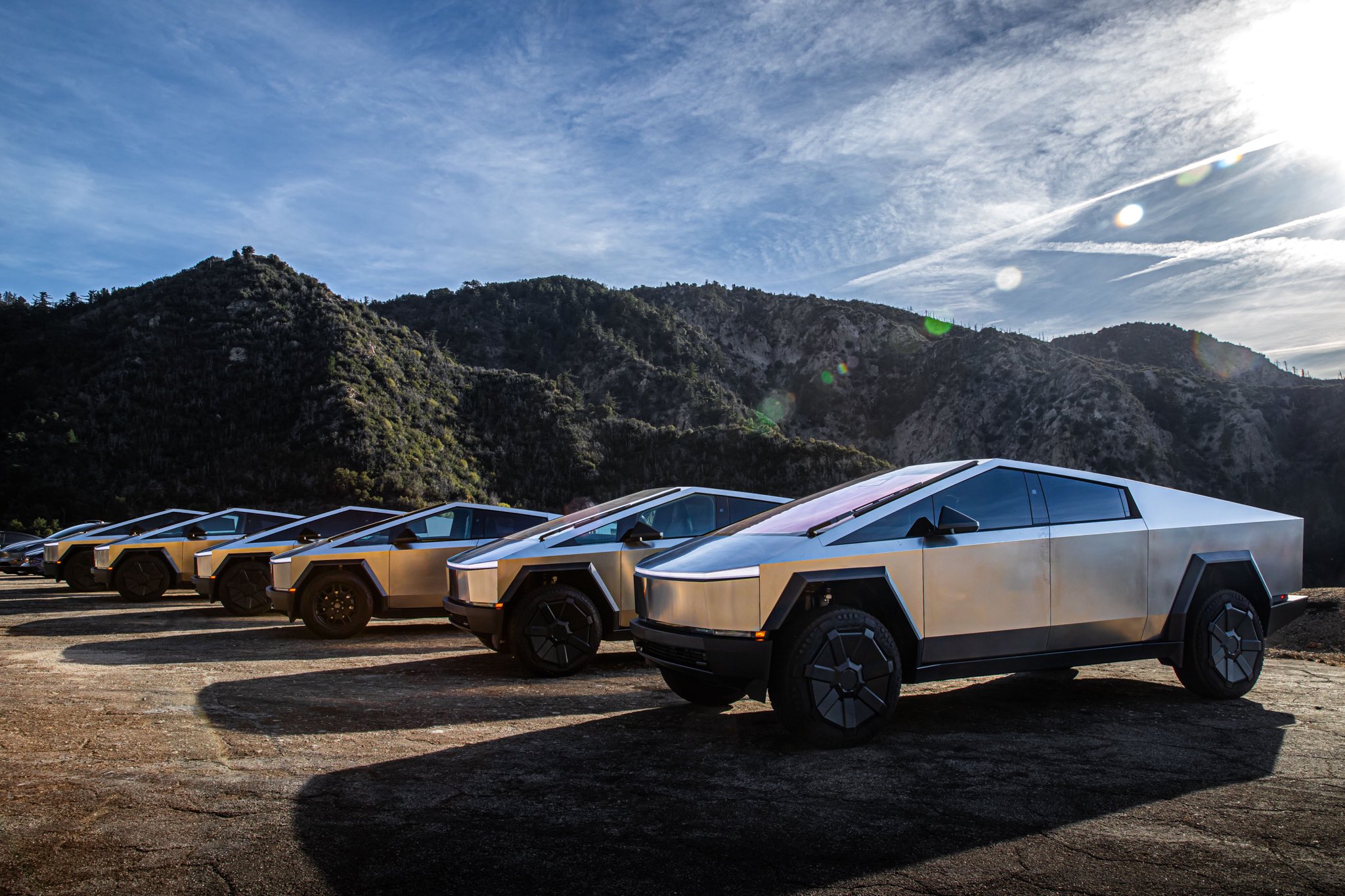
Tesla made a change to the Cybertruck, and nobody noticed. But to be fair, nobody could have, but it was revealed by the program’s lead engineer that it was aimed toward simplifying manufacturing through a minor change in casting.
After the Cybertruck was given a Top Safety Pick+ award by the Insurance Institute for Highway Safety (IIHS), for its reputation as the safest pickup on the market, some wondered what had changed about the vehicle.
Tesla makes changes to its vehicles routinely through Over-the-Air software updates, but aesthetic changes are relatively rare. Vehicles go through refreshes every few years, as the Model 3 and Model Y did earlier this year. However, the Cybertruck is one of the vehicles that has not changed much since its launch in late 2023, but it has gone through some minor changes.
Most recently, Wes Morrill, the Cybertruck program’s Lead Engineer, stated that the company had made a minor change to the casting of the all-electric pickup for manufacturing purposes. This change took place in April:
We made a minor change on the casting for manufacturability in April. Our Internal testing shows no difference in crash result but IIHS only officially tested the latest version
— Wes (@wmorrill3) December 17, 2025
The change is among the most subtle that can be made, but it makes a massive difference in manufacturing efficiency, build quality, and scalability.
Morrill revealed Tesla’s internal testing showed no difference in crash testing results performed by the IIHS.
The 2025 Cybertruck received stellar ratings in each of the required testing scenarios and categories. The Top Safety Pick+ award is only given if it excels in rigorous crash tests. This requires ‘Good’ ratings in updated small and moderate overlap front, side, roof, and head restraints.
Additionally, it must have advanced front crash prevention in both day and night. Most importantly, the vehicle must have a ‘Good’ or ‘Acceptable’ headlights standard on all trims, with the “+ ” specifically demanding the toughest new updated moderate overlap test that checks rear-seat passenger protection alongside driver safety.
News
Tesla enters interesting situation with Full Self-Driving in California
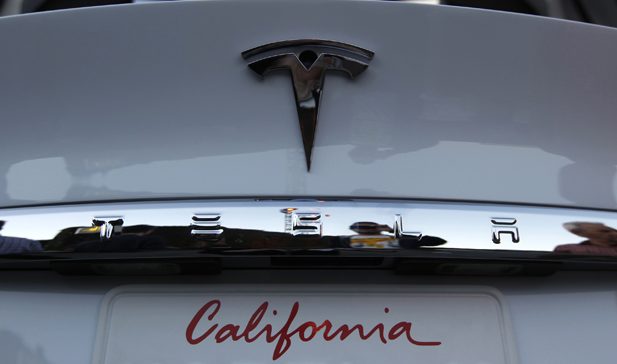
Tesla has entered an interesting situation with its Full Self-Driving suite in California, as the State’s Department of Motor Vehicles had adopted an order for a suspension of the company’s sales license, but it immediately put it on hold.
The company has been granted a reprieve as the DMV is giving Tesla an opportunity to “remedy the situation.” After the suspension was recommended for 30 days as a penalty, the DMV said it would give Tesla 90 days to allow the company to come into compliance.
The DMV is accusing Tesla of misleading consumers by using words like Autopilot and Full Self-Driving on its advanced driver assistance (ADAS) features.
The State’s DMV Director, Steve Gordon, said that he hoped “Tesla will find a way to get these misleading statements corrected.” However, Tesla responded to the story on Tuesday, stating that this was a “consumer protection” order for the company using the term Autopilot.
It said “not one single customer came forward to say there’s a problem.” It added that “sales in California will continue uninterrupted.”
This was a “consumer protection” order about the use of the term “Autopilot” in a case where not one single customer came forward to say there’s a problem.
Sales in California will continue uninterrupted.
— Tesla North America (@tesla_na) December 17, 2025
Tesla has used the terms Autopilot and Full Self-Driving for years, but has added the term “(Supervised)” to the end of the FSD suite, hoping to remedy some of the potential issues that regulators in various areas might have with the labeling of the program.
It might not be too long before Tesla stops catching flak for using the Full Self-Driving name to describe its platform.
Tesla Robotaxi goes driverless as Musk confirms Safety Monitor removal testing
The Robotaxi suite has continued to improve, and this week, vehicles were spotted in Austin without any occupants. CEO Elon Musk would later confirm that Tesla had started testing driverless rides in Austin, hoping to launch rides without any supervision by the end of the year.
Investor's Corner
Tesla stock closes at all-time high on heels of Robotaxi progress
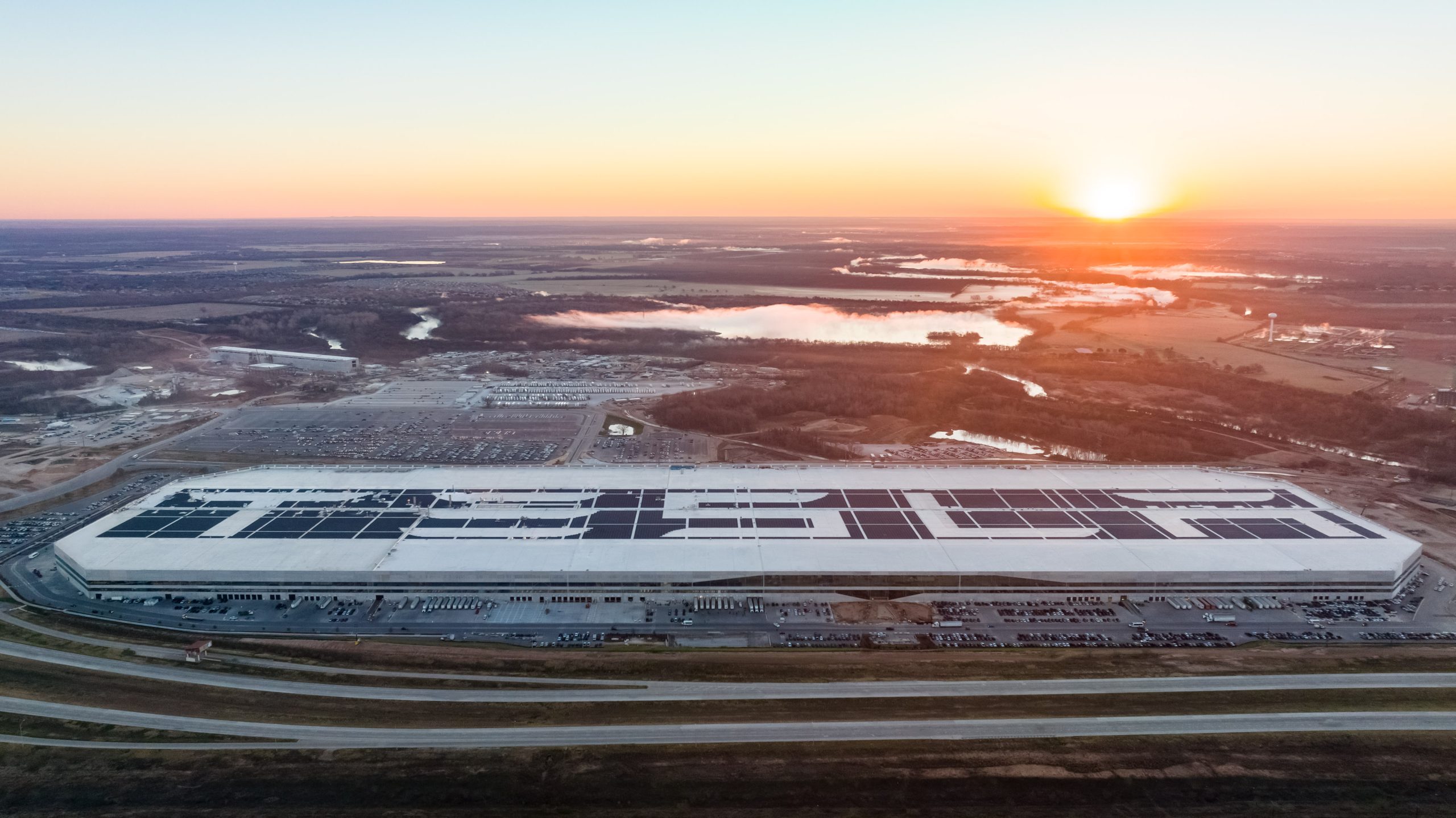
Tesla stock (NASDAQ: TSLA) closed at an all-time high on Tuesday, jumping over 3 percent during the day and finishing at $489.88.
The price beats the previous record close, which was $479.86.
Shares have had a crazy year, dipping more than 40 percent from the start of the year. The stock then started to recover once again around late April, when its price started to climb back up from the low $200 level.
This week, Tesla started to climb toward its highest levels ever, as it was revealed on Sunday that the company was testing driverless Robotaxis in Austin. The spike in value pushed the company’s valuation to $1.63 trillion.
Tesla Robotaxi goes driverless as Musk confirms Safety Monitor removal testing
It is the seventh-most valuable company on the market currently, trailing Nvidia, Apple, Alphabet (Google), Microsoft, Amazon, and Meta.
Shares closed up $14.57 today, up over 3 percent.
The stock has gone through a lot this year, as previously mentioned. Shares tumbled in Q1 due to CEO Elon Musk’s involvement with the Department of Government Efficiency (DOGE), which pulled his attention away from his companies and left a major overhang on their valuations.
However, things started to rebound halfway through the year, and as the government started to phase out the $7,500 tax credit, demand spiked as consumers tried to take advantage of it.
Q3 deliveries were the highest in company history, and Tesla responded to the loss of the tax credit with the launch of the Model 3 and Model Y Standard.
Additionally, analysts have announced high expectations this week for the company on Wall Street as Robotaxi continues to be the focus. With autonomy within Tesla’s sights, things are moving in the direction of Robotaxi being a major catalyst for growth on the Street in the coming year.








